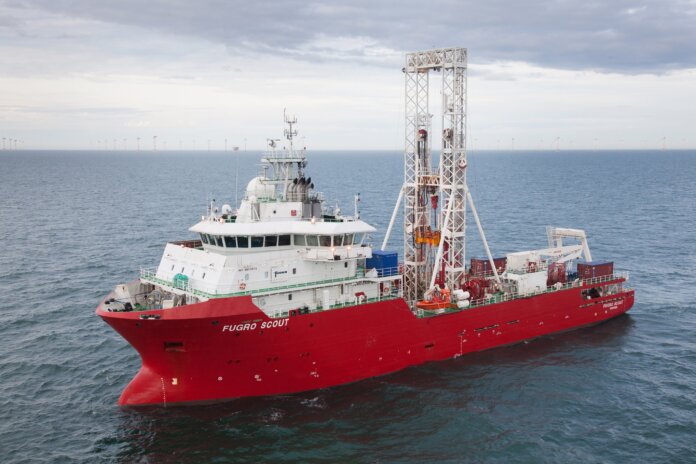RWE has started soil investigations off the Danish west coast. Up to three research vessels will acquire geotechnical data from the seabed approximately 22 kilometers from the port of Thorsminde in Denmark. The collected data is important for the fabrication and installation of the main components of RWE’s Thor offshore wind farm.
The geological research vessel Fugro Scout has already started geotechnical drilling and testing at the wind turbine locations. The various information obtained will verify existing data and provide additional geotechnical parameters to assist with the detailed design and optimization of the foundations for the offshore substation and wind turbines.
Two additional specialized vessels from Fugro will support the survey from mid-July onwards. The Normand Mermaid will be equipped to obtain key parameters to better understand the soil behavior under turbines loading area. The vessel Energy Scout will acquire key data to enable the design, installation and protection of the inter array cables and the main export cable that connects the offshore substation with the onshore grid. Thermal conductivity tests will be carried out to determine the thermal properties of the soil in and around this area of development.
With a planned capacity of 1,000 MW, Thor will be Denmark’s largest offshore wind farm to date. Once fully operational, which is planned to be no later than 2027, Thor would be capable of producing enough green electricity to supply the equivalent of more than one million Danish households.




